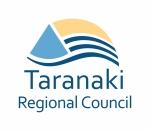Didymo message motors along
The didymo message is hitting the road in Taranaki.
The Taranaki Regional Council this week begins a summer education campaign on didymo, targeting anglers, kayakers, boaties and other freshwater users throughout the region.
Council staff and students on temporary employment will visit popular freshwater recreation sites with a message summed up in three words: Check, clean, dry.
Those are the procedures the Council and MAF Biosecurity NZ are urging all river and stream users to adopt in an effort to prevent the spread of didymo, a Northern Hemisphere invasive alga that is also known as rock snot.
Didymo was discovered in South Island waters in 2004. It is not yet known to be in the North Island.
It attaches itself to streambeds by stalks and can form large mats on the bottom of streams, rivers and even lake edges. Thick, ugly growths can adversely affect freshwater fish, plant and invertebrate species.
It can be spread easily, with a single cell in a drop of water able to start a new colony if released into a different waterway.
For that reason, people leaving streams and rivers are urged to:
Check equpment for any debris and leave it at the site.
Clean all equpment with detergent, bleach or hot water.
Dry equipment and do not use it for 48 hours.
All items should be cleaned for at least one minute with a 5% solution of dishwashing liquid or nappy cleaner, dried to the touch and left for another 48 hours before use in another waterway. If this is not possible, restrict their use to one waterway.
The education campaign will involve personal approaches to river users and sessions with organizations such as clubs. It will continue until late March.
Information and detergent spray bottles will also be available at the Taranaki Fish and Game kids’ fishing days next weekend (eds: weekend of 8-9 December).
The Taranaki Regional Council is part of a Regional Didymo Group that also includes the Department of Conservation, Taranaki Fish and Game, Venture Taranaki, Trust Power and Taranaki iwi.
The Council’s Director-Operations, Rob Phillips, says the October didymo scare in the central North Island proved how easily didymo cells can be transported.
Dead didymo cells were found in tests of water samples from four central North Island waterways but their source was later found to be contaminated water sample containers, which had been used in didymo work in the South Island.
“It just shows how simple mistakes can allow didymo cells to be unwittingly carried from one place to another,” Mr Phillips says.
Fish and Game Officer Allen Stancliff says it’s vital for users of river and streams to follow the didymo cleaning procedures if we are to have any hope of keeping rock snot out of Taranaki waterways.
“These procedures should be followed within Taranaki and by those taking fishing gear, kayaks or boats to and from other parts of the country over the summer period,” he says.
Information and detergent spray bottles are available at sports shops and Mr Stancliff urges recreational water users to take advantage of them.
Clubs and other organisations wanting to organise didymo education sessions can call the Taranaki Regional Council on 06 765 7127.
For more information, see www.trc.govt.nz.

